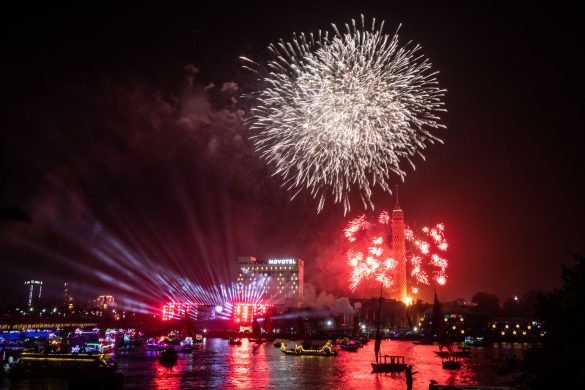Political interests at home and abroad are helping to keep northern Ugandas 18-year conflict out of the global spotlight despite the fact that more people have been displaced there than in Sudans Darfur region, NGOs say according to AlertNet Tuesday.
Some aid agencies argue that Ugandas special relationship with donors – which provide 50 percent of the countrys annual budget – and the countrys reputation as a development success story sometimes distract from what the United Nations has described as the worlds worst humanitarian crisis.
Almost two million people have been displaced in northern Uganda, compared with just over a million in Darfur, yet the crisis rarely makes international headlines or sparks outcry from world leaders.
For Ugandan President Yoweri Musuveni, that may be just as well, NGOs say.
– The permanence of a crisis helps the government to get more money from the outside, a programme officer for an NGO working in the region said, adding: – The government has not had a great interest to find a solution to the conflict.
The officer, like several others contacted by AlertNet, declined to be identified for fear his organisations operations would be compromised if he criticised the government.
The Lords Resistance Army (LRA), a rebel group and religious sect, has been terrorising northern Uganda for years, uprooting almost the entire population of Acholiland, kidnapping children to camps in southern Sudan and forcing them to become fighters and sex slaves.
President Yoweri Museveni claims he could act more effectively against the LRA if donors lifted spending curbs on defence. But some NGOs say the insurgency has allowed Museveni to consolidate his grip on power.
– Museveni pursues a military solution in part to justify the unreformed army that is a key pillar of his regime, the International Crisis Group (ICG) said in a report issued in April.
– Indeed, the war helps him justify and maintain the status quo in Ugandan politics, denying his opposition a power base and offering numerous opportunities for curtailing freedom of expression and association in the name of ‘the war against terrorism, the report stated.
ICGs Africa director, Suliman Baldo, said many factors were prolonging the crisis, including traditional historical neglect of the impoverished north, the ineffectiveness of the Ugandan army and a complex relationship with neighbouring Sudan, which has backed the LRA because it accuses Uganda of supporting insurgents in southern Sudan.
The government has not invested in the north, he said, echoing the ICG report, which found that as long as the situation in the north was dominated by security matters, the monopolisation of power and wealth by southerners would not be questioned.
The LRA insurgency, led by self-proclaimed prophet Joseph Kony, lacks any clear and negotiable political objectives.
– One of the difficulties in Uganda is understanding what the rebel cause is all about, said James Allen, programme officer for the International Rescue Committee UK, adding: – Who is the LRA? What are they fighting for? When it is an enemy you do not know, how do you defeat it?
DONOR INTERESTS
For their part, donors would rather focus on Ugandas successes, rather than its failures, NGOs say.
– Uganda is presented as a champion of development and as a champion in the fight against terrorism, said a representative of an international NGO adding: – Saying the contrary would be a problem for donors who have invested big money.
Another programme officer said funding earmarked for health and education was flowing back into the central governments coffers because the villages in the targeted region were deserted.
Another aid official said national authorities needed to show a greater commitment to ensuring the security and protection of their own population and relief workers, given the dangers of working in LRA territory.
– Displaced people are often sitting ducks for LRA raids. One day the World Food Programme distributes food and the next day the LRA comes and takes the food, kidnaps people to carry the food, and kidnaps children to be child soldier, added the aid official.
Kilde: AlertNet















